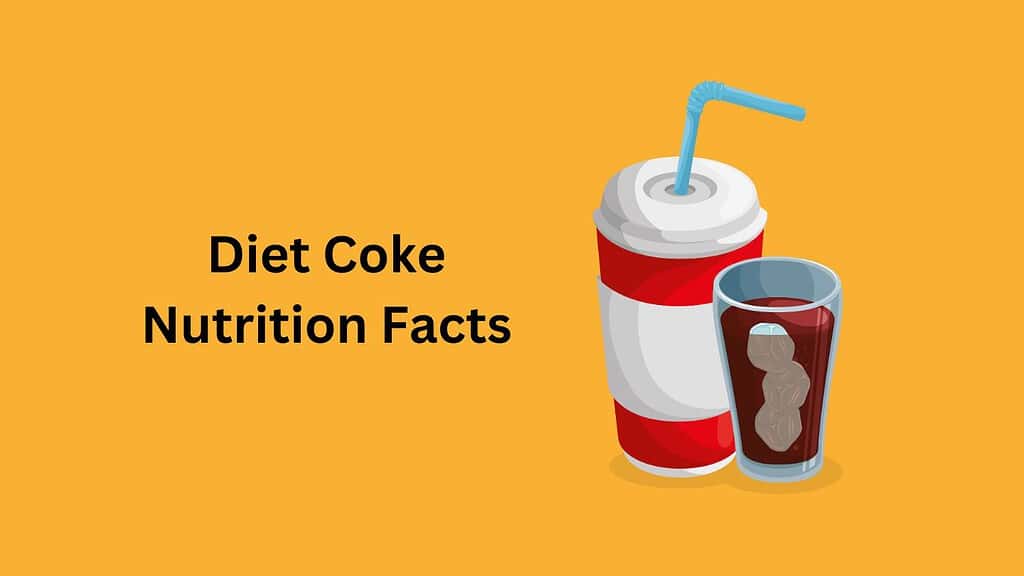Introduction
Diet Coke Nutrition Facts: Diet Coke, launched in 1982, is a sugar-free, low-calorie carbonated beverage produced by The Coca-Cola Company. A 12-ounce (355-milliliter) serving contains 0 calories, 0 grams of total fat, 40 milligrams of sodium, 0 grams of total carbohydrates, 0 grams of total sugars, and 0 grams of protein. The ingredients include carbonated water, caramel color, aspartame, phosphoric acid, potassium benzoate (to preserve taste), natural flavors, citric acid, and caffeine. Each 12-ounce serving provides 46 milligrams of caffeine.
It is important to note that due to the presence of phenylalanine from aspartame, individuals with phenylketonuria (PKU) should avoid consuming Diet Coke. The beverage is available in various sizes, including 7.5, 8, 12, 13.2, 16.9, and 20 fluid ounces, as well as 1.25 and 2-liter bottles. Additionally, a caffeine-free version is available for those looking to limit their caffeine intake.
Diet Coke Nutrition Facts
- A 12-ounce can of Diet Coke contains 0 calories.
- It has 0g of total fat, including 0g saturated fat, 0g trans fat, 0g polyunsaturated fat, and 0g monounsaturated fat, contributing to 0% of the daily value.
- The drink contains 0mg of cholesterol, accounting for 0% of the daily value.
- Sodium content ranges from 40mg to 57mg, contributing up to 2% of the daily value.
- It contains 0g of total carbohydrates, including 0g of total sugars.
- Protein content is 0g.
- A single can includes 46mg of caffeine.
Carbonated vs. Non-Carbonated Drinks
| Non-carbonated | Carbonated drinks |
| Contains no dissolved carbon dioxide gas | Contains dissolved carbon dioxide gas, which creates bubbles in the drink |
| Flavours depend on ingredients | Flavours depend on the amount of acidity |
| The drink feels still and smooth when consumed | The drink feels bubbly and tingling when consumed |
| Commonly consumed for dietary purposes, nourishment, refreshment, or hydration | Consumed for refreshment |
| Non-carbonated drinks are healthier. | Carbonated drinks are healthier |
| It can be consumed every day. | Shouldn’t be consumed every day |
| Non-carbonated drinks usually don’t have any side effects, but a moderate level of consumption is expected. | Excessive consumption of carbonated drinks results in weight gain and other health issues. |
| Example: Tea, Coffee, Milk Shakes, etc | Examples: Beer, Champagne, and any alcoholic drink, Energy drink etc |
Calories in Juices
| Fruit Juices (1 cup serving) |
Fat (g) | Carbs (g) | Protein (g) | Calories |
| Pineapple Juice | 0.30 | 32.18 | 0.90 | 132 |
| Orange Juice | 0.50 | 25.79 | 1.74 | 112 |
| Grape Juice | 0.20 | 37.85 | 1.42 | 154 |
| Grapefruit Juice | 0.25 | 22.13 | 1.28 | 94 |
| Apple Juice | 0.27 | 28.97 | 015 | 117 |
| Watermelon juice | 0.36 | 17.97 | 1.45 | 71 |
| Prune Juice | 0.08 | 44.67 | 1.56 | 182 |
| Tangerine Juice | 0.49 | 24.95 | 1.24 | 106 |
| Pineapple Orange Banana Juice | 0.15 | 30.95 | 1.40 | 128 |
| Pineapple Grapefruit Juice | 0.28 | 27.30 | 1.10 | 115 |
| Pineapple Orange Juice | 0.32 | 28.40 | 1.20 | 120 |
| Pink Grapefruit Juice | 0.25 | 22.72 | 1.24 | 96 |
| Papaya Juice | 0.37 | 35.84 | 0.42 | 141 |
| Passion Fruit Juice | 0.12 | 33.59 | 0.96 | 126 |
| Cranberry Juice (no sugar added) | 0.33 | 30.87 | 0.99 | 116 |
| Orange and Banana juice | 0.32 | 34.50 | 1.95 | 140 |
| Orange, Strawberry Banana Juice | 0.35 | 29.18 | 0.98 | 108 |
| Grapefruit and Orange juice | 0.25 | 25.39 | 1.48 | 106 |
| Grape, Tangerine, Lemon juice | 0.34 | 31.83 | 1.27 | 127 |
| Apple Grape Raspberry Juice | 0.27 | 31.50 | 0.55 | 128 |
| Apple Grape Juice | 0.24 | 31.70 | 0.63 | 129 |
| Apricot Orange juice | 0.30 | 30.30 | 1.20 | 122 |
| Apple Cherry Juice | 0.30 | 29.80 | 0.75 | 118 |
| Vegetable / Plant Juice (1 cup serving) |
Fat (g) | Carbs (g) | Protein (g) | Calories |
| Aloe Vera Juice | 0.30 | 31.92 | 0.89 | 131 |
| Acerola Juice | 0.73 | 11.62 | 0.97 | 56 |
| Ambrosia Juice | 2.43 | 31.80 | 1.49 | 149 |
| Tomato Juice | 0.12 | 10.30 | 1.85 | 41 |
| Celery Juice | 0.38 | 9.46 | 1.96 | 42 |
| Carrot Juice | 0.35 | 21.92 | 2.24 | 94 |
| Mixed Vegetable Juice | 0.59 | 14.93 | 3.67 | 71 |
| Smoothies (1 cup serving) |
Fat (g) | Carbs (g) | Protein (g) | Calories |
| Fruit juice and Dairy smoothie | 3.23 | 41.15 | 3.41 | 198 |
| Fruit or Fruit Juice Smoothie | 0.29 | 33.52 | 0.88 | 130 |
| Smoothie with fruit juice and low-fat dairy | 3.23 | 41.15 | 3.41 | 198 |
| Smoothie with fruit juice and low-fat dairy, (1 retail store smoothie, 20 fl oz) |
8.10 | 103.07 | 8.55 | 496 |
Calories in Sodas
| Soda | Fat (g) | Carbs (g) | Protein (g) | Calories |
| Sugar-Free Soda, 1 bottle (16 fl oz) | 0.09 | 1.12 | 0.52 | 5 |
| Sugar-Free Soda, 1 can (12 fl oz) | 0.07 | 0.84 | 0.39 | 4 |
| Regular Soda, 1 bottle (16 fl oz) |
0.05 | 48.07 | 0.34 | 187 |
| Regular Soda, 1 can (12 fl oz) |
0.04 | 36.05 | 0.26 | 140 |
| Diet soda / Pepper Soda, 1 can (12 fl oz) | – | 0.36 | – | – |
| Diet soda / Pepper Soda, 1 bottle (16 fl oz) |
– | 0.47 | – | – |
| Diet Soda (other than above mentioned, 1 bottle, 16 fl oz) |
– | – | 0.47 | – |
| Diet Soda, other than above mentioned, 1 can (12 fl oz) | – | – | 0.36 | – |
| Coke Zero, 1 can | – | – | – | – |
| Diet Coke, 1 can | – | – | – | – |
|
Classic Coca-Cola, 1 can |
– | 39.00 | – | 140 |
|
Pepsi Mix, 1 can |
– | – | 0.10 | – |
| Diet Pepsi, 1 can | – | – | – | – |
|
Pepsi, 1 can |
– | 41.00 | – | 150 |
| 1 Regular cola soda, 1 can | – | 28.00 | – | 100 |
| Orange Soda,1 can | – | 45.76 | – | 179 |
|
Club Soda,1 can |
– | – | – | – |
| Sugar-free cream soda | – | – | 0.36 | – |
| Cola soda with caffeine | 0.07 | 35.18 | 0.26 | 136 |
| Caffeine-free sugar-free cola soda | – | 0.53 | 0.43 | 4 |
| Cola Soda with Caffeine | 0.07 | 35.18 | 0.26 | 136 |
| Non-Alcoholic Beer, Heineken (100 ml) | – | 4.8 | – | 21 |
Calories in Energy Drinks
| Energy Drinks | Fat (g) | Carbs (g) | Protein (g) | Calories |
| Red Bull (regular, 1 can) | – | 28.00 | – | 110 |
| Amp Energy Overdrive (regular, 1 can) | – | 58.00 | – | 220 |
| Rockstar Energy (regular, 1 can) | – | 31.00 | – | 140 |
| Monster Energy (regular, 1 can) |
– | 27.00 | – | 100 |
| Red Bull (sugar-free, 1 can) |
– | 3.00 | – | 10 |
| Amp Energy (sugar-free, 1 can) |
– | – | – | 5 |
| No Fear Energy (sugar-free, 1 can) |
– | – | 1.00 | 10 |
| Rockstar Energy (sugar-free, 1 can) |
– | – | – | 20 |
| Energy Drink (1 bottle, 12 fl oz) |
0.29 | 39.38 | 0.90 | 162 |
| Energy Drink (1 cup, 8 fl oz) |
0.19 | 26.26 | 0.60 | 108 |
| Energy Drink (1/2 cup,4 fl oz) |
0.10 | 13.13 | 0.30 | 54 |
| Fruit Flavoured Sports Drink (1 cup or 8 fl oz serving) |
0.24 | 16.49 | – | 66 |
| Low-Calorie Fruit Flavoured sports drink | – | 7.20 | – | 26 |
Calories in Diet Coke
| Diet Coke | Fat (g) | Carbs (g) | Protein (g) | Calories |
| Diet Coca Cola, 1 can (330 ml) | – | – | – | 1 |
Calories in Alcoholic Drinks
| Alcoholic Drinks | Fat (g) | Carbs (g) | Protein (g) | Calories |
| 1 Rum and cola cocktail | 0.11 | 15.32 | 0.17 | 154 |
| Rum cooler, 1 bottle | 0.58 | 33.19 | 0.43 | 218 |
| Rum (2 fl oz) | – | – | – | 128 |
| Rum (1 shot or jigger,1.5 fl oz) |
– | – | – | 97 |
| Rum (1fl oz) | – | – | – | 64 |
| Whiskey, 60 ml (86 Proof) |
– | 0.06 | – | 141 |
| Irish Whiskey, 1 shot (1 oz) |
– | – | – | 69 |
| Vodka, (2fl oz) | – | – | – | 128 |
| Vodka, (1 fl oz) | – | – | – | 64 |
| Vodka, (1 shot/jigger, 1.5 fl oz) |
– | – | – | 128 |
| White Wine, White Table, (5fl oz glass) |
– | 3.82 | 0.10 | 122 |
| White Wine, Riesling, (5fl oz glass) | – | 5.54 | 0.10 | 120 |
|
White Wine, Pinot Blanc, |
– | 2.85 | 0.10 | 121 |
| White Wine, Chenin Blanc, (5fl oz glass) |
– | 4.90 | 0.10 | 120 |
|
White Wine, Chardonnay Wine, |
– | 3.43 | 0.10 | 122 |
| White Wine, Pinot Gris (Grigio), (5fl oz glass) | – | 3.03 | 0.10 | 123 |
|
White Wine, Semillon, (5fl oz glass) |
– | 4.59 | 0.10 | 122 |
| White Wine, Sauvignon Blanc, (5fl oz glass) |
– | 3.01 | 0.10 | 121 |
Types of Carbonated Drinks
#1. Alcoholic Drinks
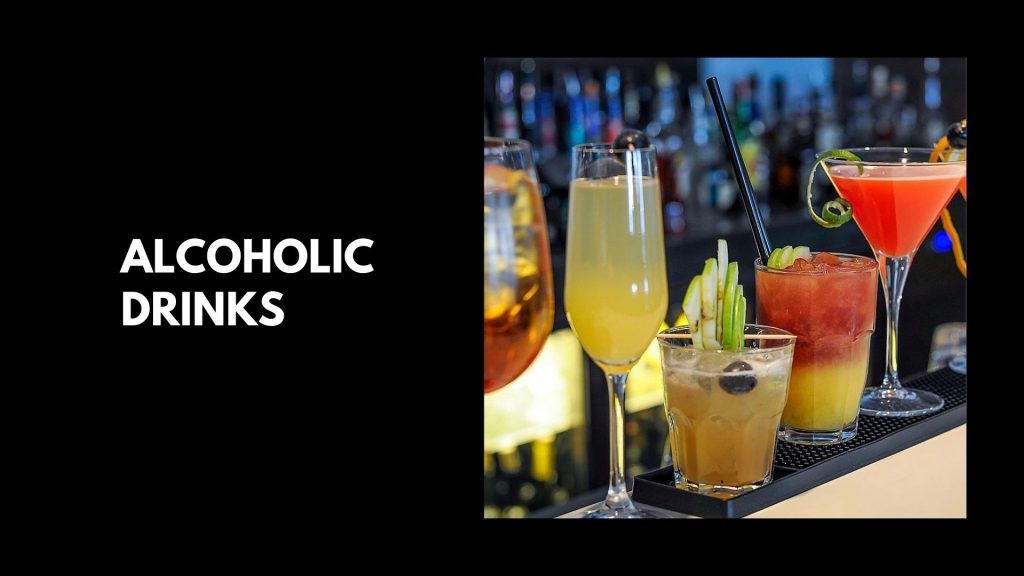
(Source: 1037theloon.com)
Alcoholic drinks are high in ethanol and psychoactive substances. Regular consumption of such drinks causes mental health issues, heart-related diseases, and weight gain problems. Examples are Wine, Beer, Cocktails and spirits.
#2. Water
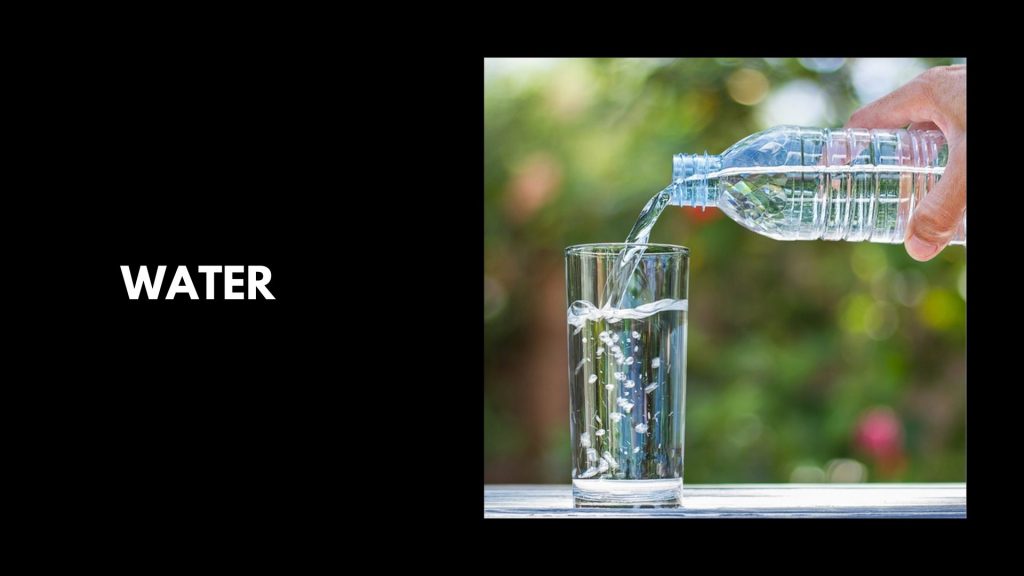
(Source: tasteofhome.com)
Carbonated water such as fizzy water, and sparkling water is a better choice for a weight management diet plan rather than any type of soda or energy drink. These include no sugar and are available in flavours such as vanilla, raspberry and lemon.
#3. Energy drinks / Sports drinks
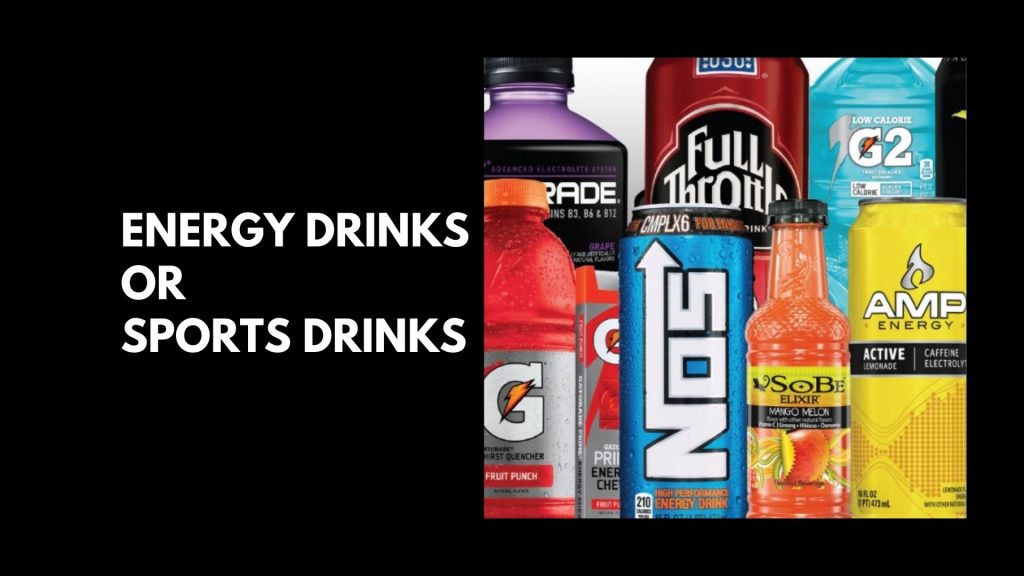
(Source: boholonlinestore.com)
Similar to sodas, energy drinks contain high amounts of caffeine, sugar and carbon dioxide gases. These may temporarily increase the energy in the body but lack hydration after body exertion. Examples are Gatorade, Red Bull etc
#4. Ready-to-Drink Juices
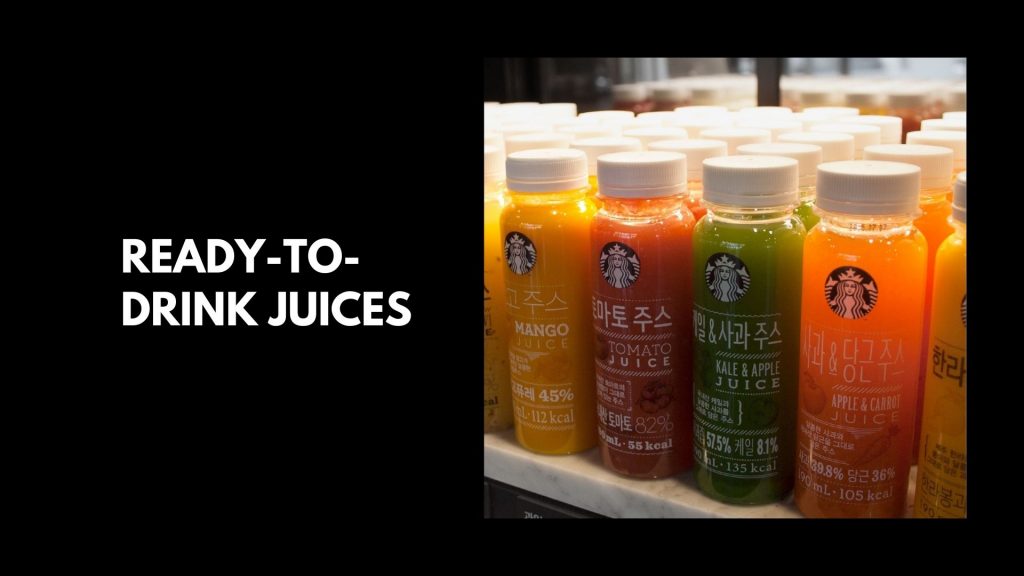
(Source: pinterest.com)
Ready-to-drink juices include preservatives and lack fibre as well as they are high in sugar content. These cause uncontrolled sugar levels, tooth decay and weight gain. Examples are Tropicana OR Minute Maid Juices.
#5. Sodas
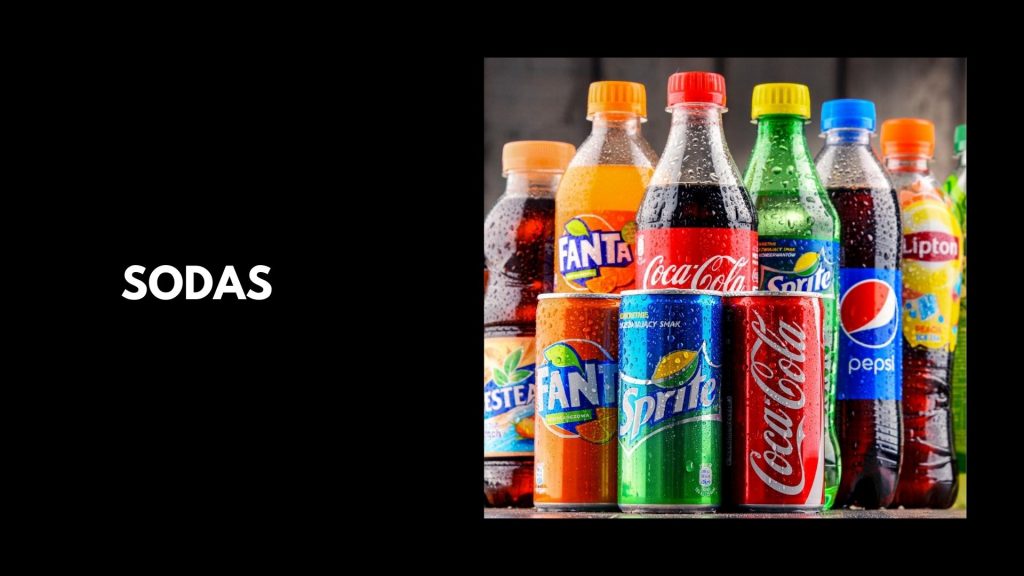
(Source: fodors.com)
Sodas are high in carbon dioxide gas. These may satisfy your thirst, but it causes dehydration in the body faster than other types of drinks. Sodas may be flavourful or even come in fruit flavours, but these are not natural and thus lead to diabetes, belly fat and weight gain. Examples are Sprite, Coca Cola etc.
Types of non-carbonated drinks
#1. Soups
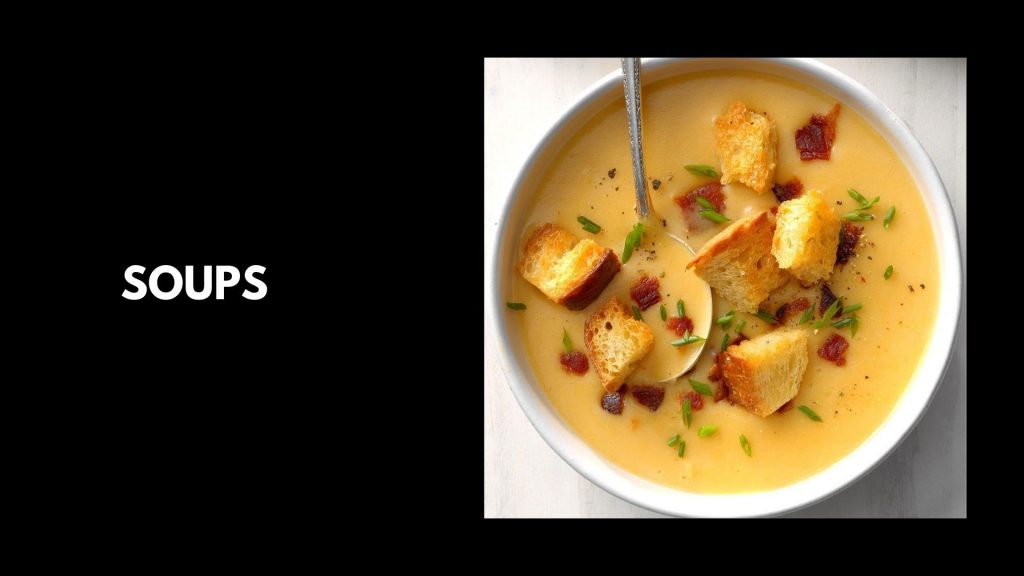
(Source: tasteofhome.com)
Soups made with healthy ingredients are a great source of vitamins such as B1, B2, B3, B6, and B12. Vegetable soups are packed with minerals like iron, potassium and magnesium.
#2. Fruit juices
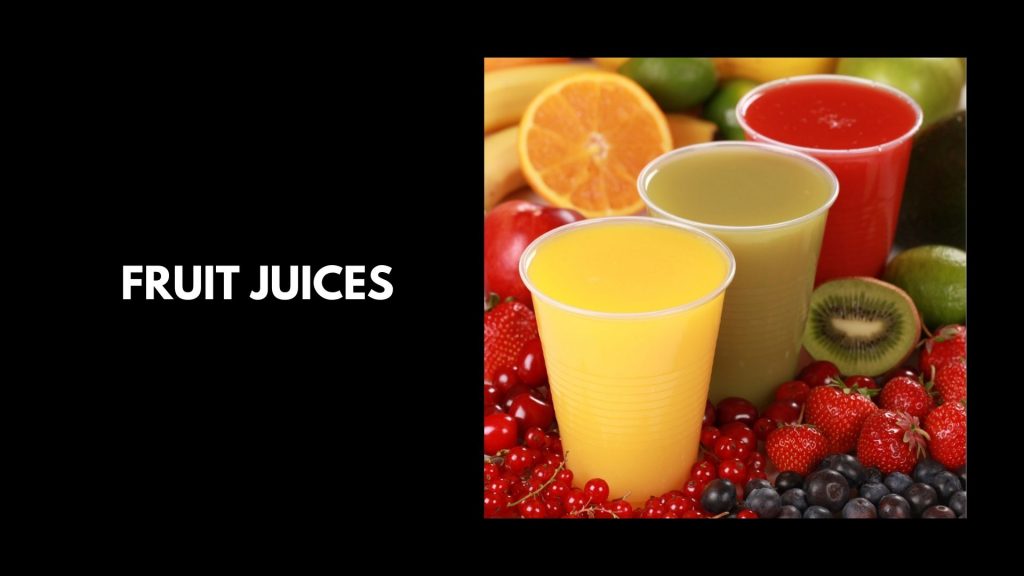
(Source: preserveyourteeth.com)
Fruit juices are packed with natural sweetness and vitamin C, which helps in improving the immune system as well as skin health. Homemade fruit juices are a better choice than pre-packed and ready-to-drink juices.
#3. Vegetable Juices
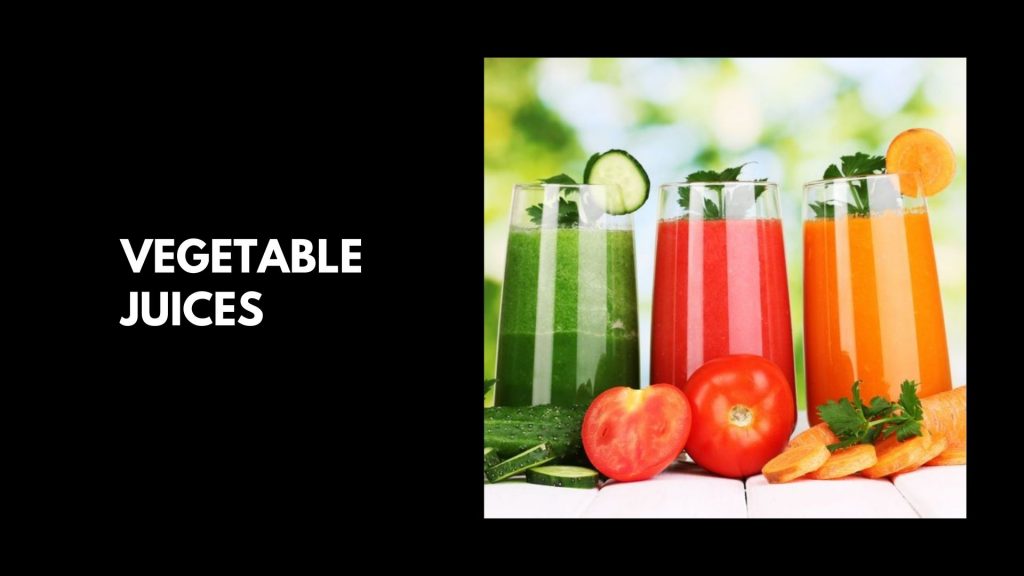
(Source: divalikes.com)
Vegetable juices offer important nutrients such as vitamin A, vitamin B, and vitamin K. Moreover, these are rich in magnesium, iron, and potassium.
#4. Coconut Water
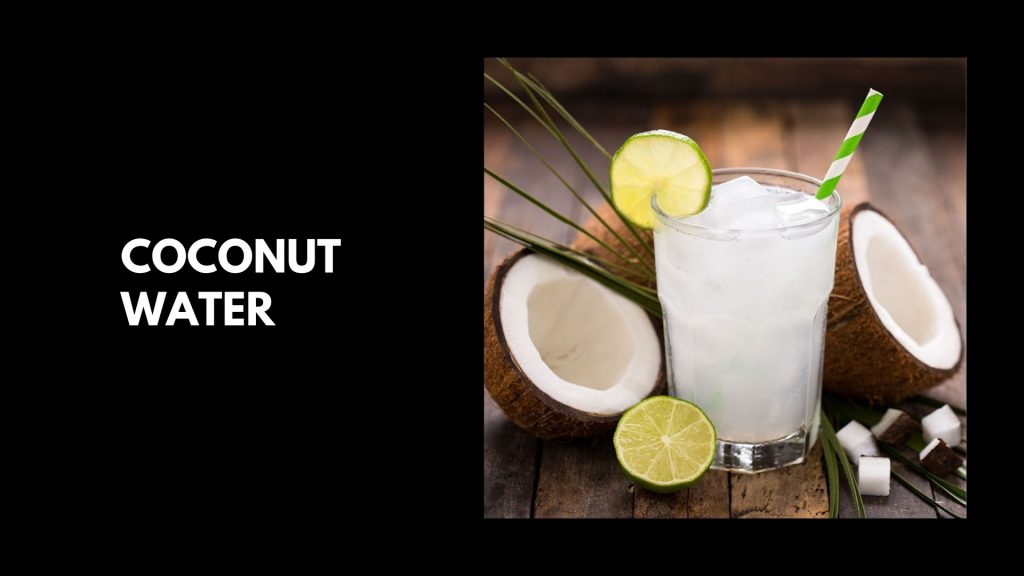
(Source: bodynutrition.org)
Coconut water is the topmost natural source of keeping the body hydrated. It is rich in vitamin C as well as vitamin B and helps in managing the amount of fluid balance in the body.
#5. Tea
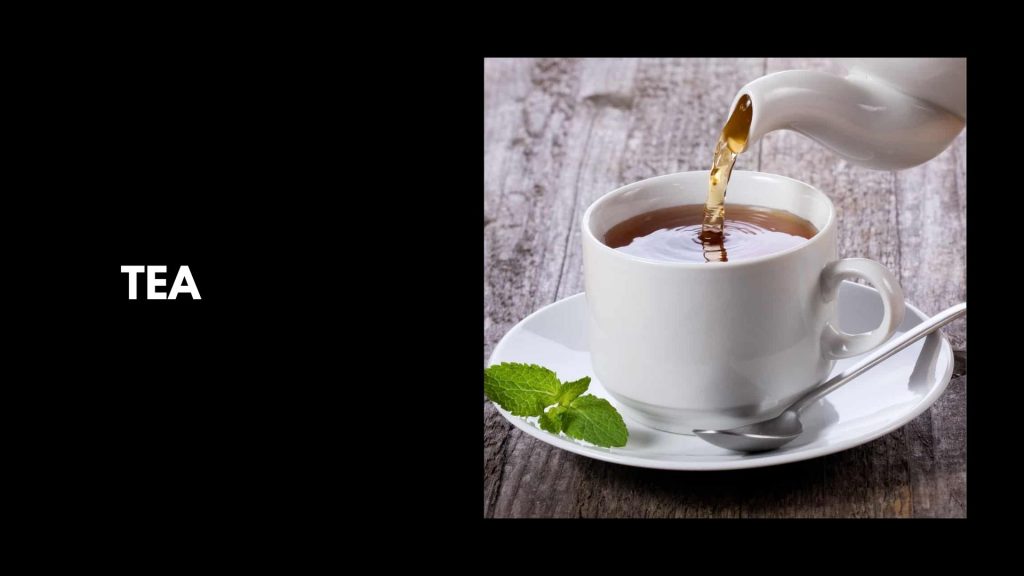
(Source: foodmedcenter.org)
Tea is rich in antioxidants. It protects overall health. However, drinking excessive tea can cause stomach issues and disturb sleep cycles.
#6. Coffee
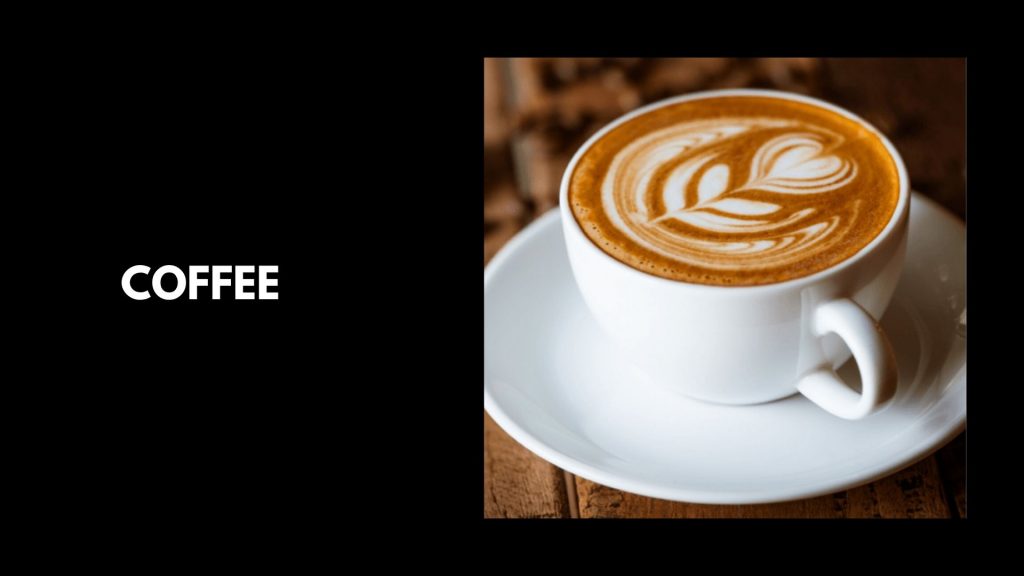
(Source: insanelygoodrecipes.com)
Coffee is full of antioxidants as well as caffeine. If you want to keep your body active without any unnatural sources of caffeine, then this type of drink is a better choice. Coffee is also packed with a good amount of magnesium, potassium, and B vitamins.
#7. Herbal teas
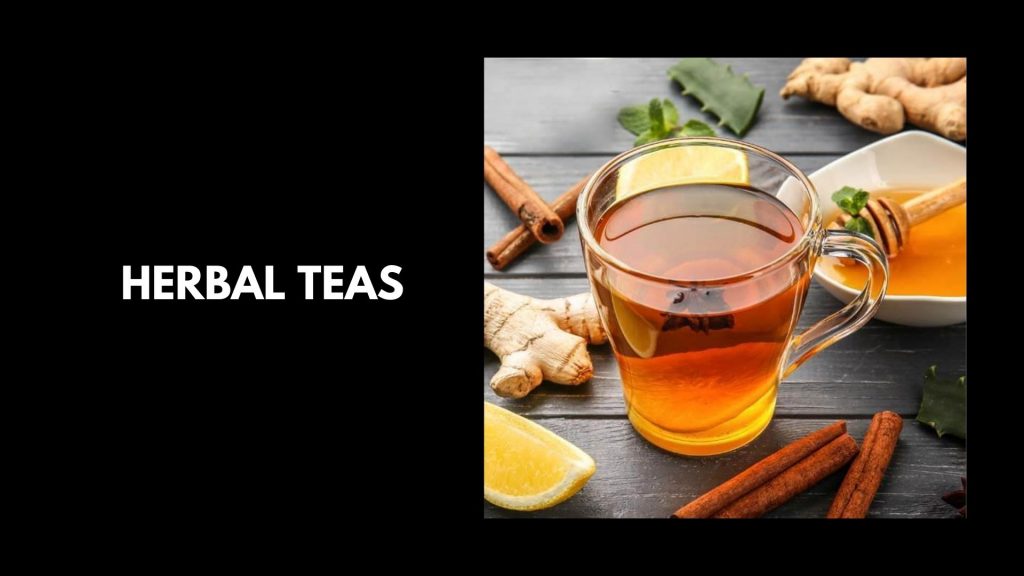
(Source: headlinesoftoday.com)
Different from regular teas, herbal teas are caffeine-free and made from fruits, herbs as well as flowers. These can stabilise the immune system as well as aid in digestion.
#8. Flavoured water
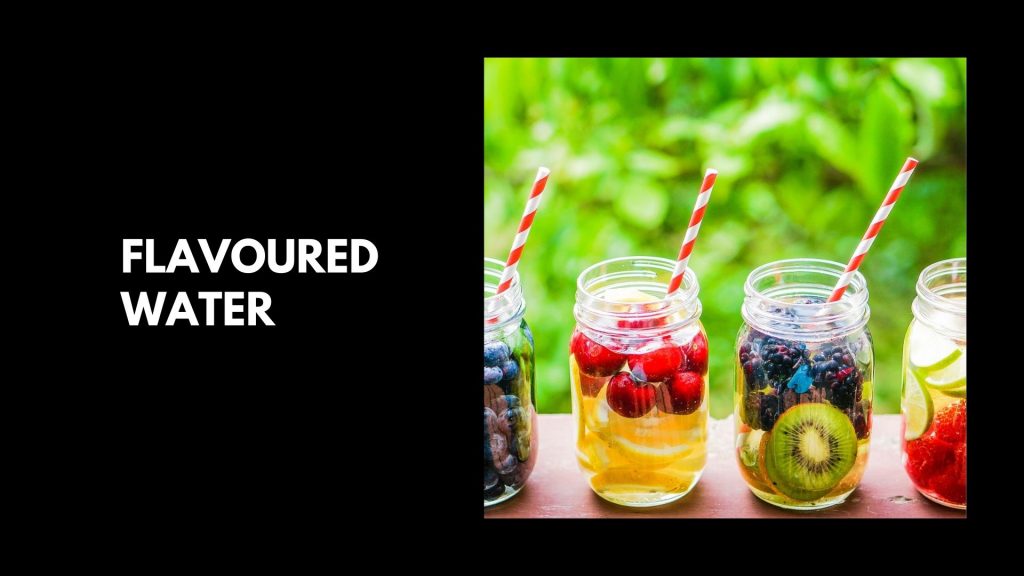
(Source: simplemost.com)
Flavoured water is added with herbs, fruits, and other kinds of natural flavours, such as lemonade. Depending on the ingredients, the amount of nutrients changes. But these provide a high amount of hydration to the body.
#9. Smoothies
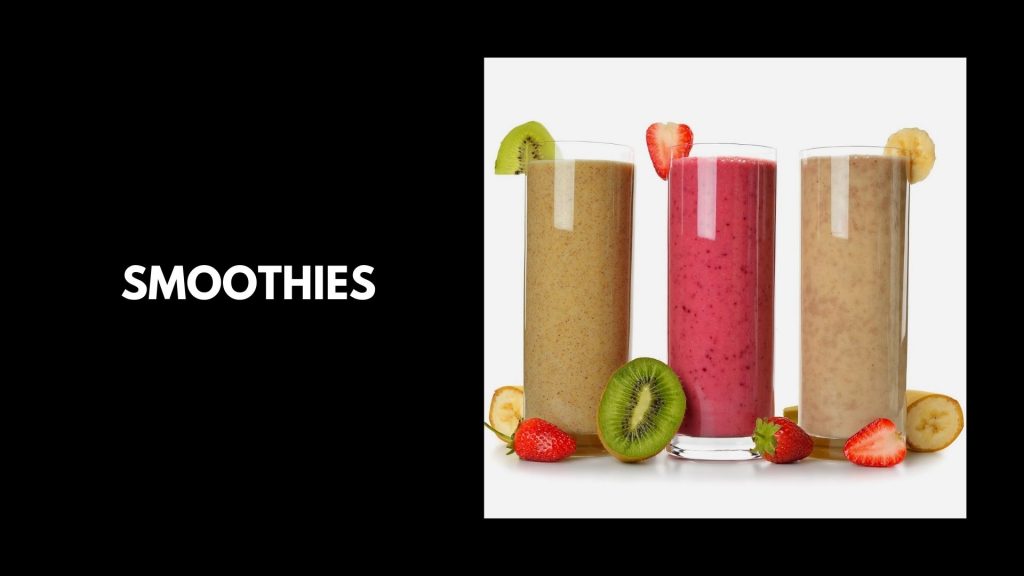
(Source: rawedibles.blogspot.com)
Smoothies are a mixture of vegetables, fruits, and liquids such as yoghurt, juice, milk, or water. These are helpful in weight loss management. Moreover, the ingredients decide the nutritive value; therefore, it is packed with minerals such as calcium, potassium, and magnesium, vitamins such as Vitamin C, Vitamin A, and Vitamin B, as well as protein and fibre.
Recipes
#1. Marshmallow Macchiato
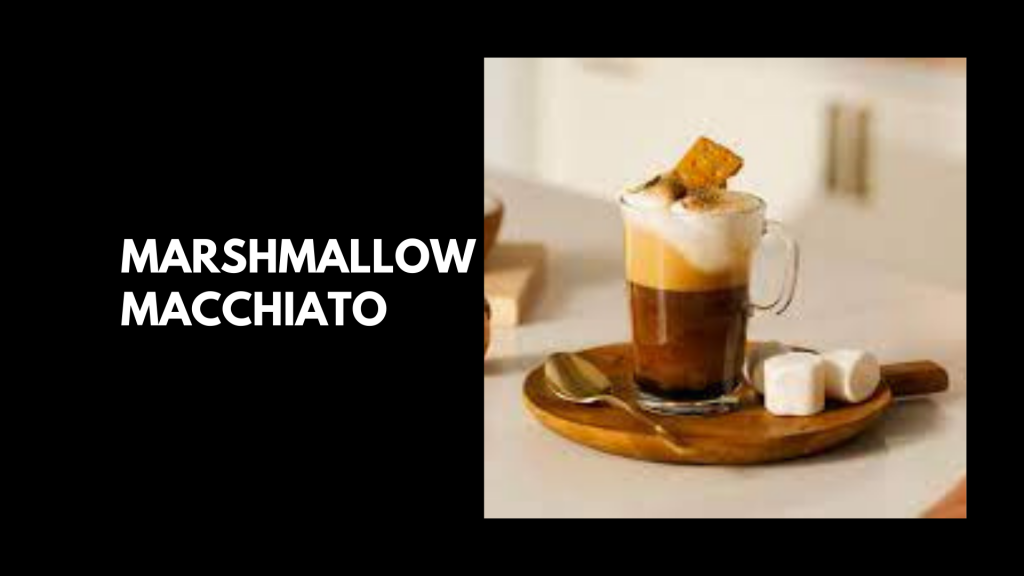
(Source: nespresso.com)
Ingredients: Red and blue sprinkles, 1 cup whole milk (240 ml), 4 oz brewed espresso (110 ml), Chocolate whipped cream, 8 marshmallows, and chocolate syrup
Instructions
Take a small saucepan and heat it on medium heat. Add milk and marshmallows, bring to a low simmer, and stir until marshmallows until melted
Then transfer the mixture into a large mug and add espresso. Top the Marshmallow Macchiato with chocolate syrup, whipped cream, and red and blue sprinkles, and serve.
#2. Watermelon Frescas
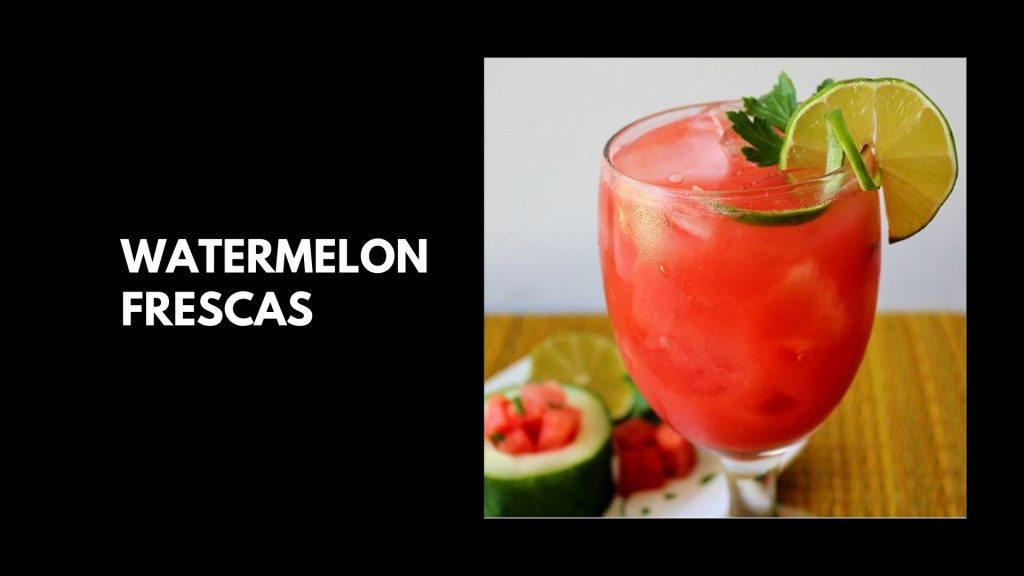
(Source: allrecipes.com)
Ingredients: 1 splash seltzer, 8 c. watermelon, Agave nectar or ⅓ cup superfine sugar, Fresh lime juice, lime wedges
Instructions
Add watermelon cubes to the food processor and blend well until liquid. Then add a pitcher with lime juice, superfine sugar, and agave nectar and blend again. Transfer the mixture into a bowl and refrigerate until it becomes very cold, then serve in glasses with ice topped with a splash of seltzer as well as a lime wedge.
#3. Margarita
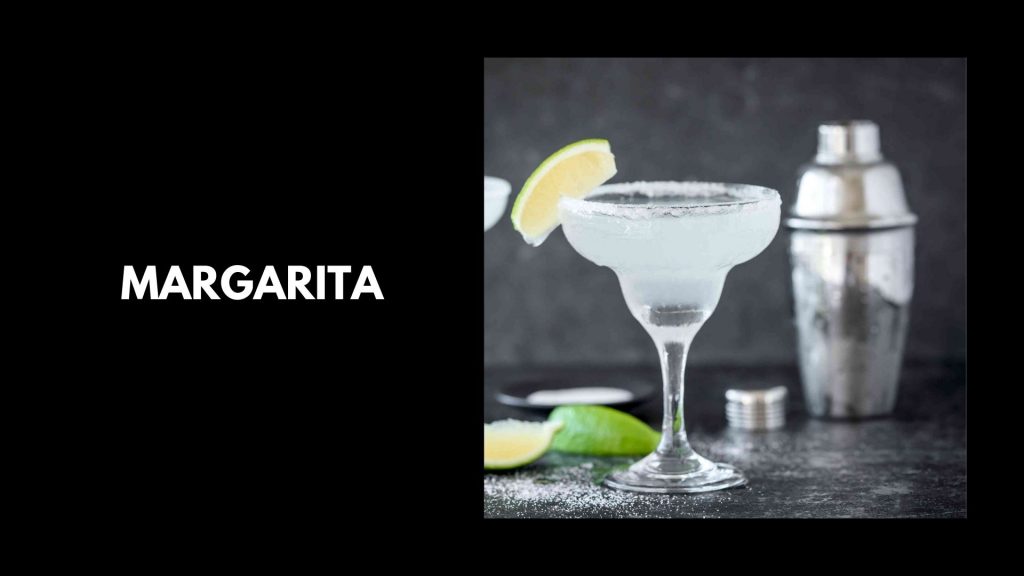
(Source: thespruceeats.com)
Ingredients: Kosher salt, ¾ ounce fresh lime juice, 1 ½ ounces tequila blanco, 1 ounce Cointreau or Triple Sec, lime wedges
Instructions: Cut a notch in a lime wedge and apply it to the rim of a glass. Then dip the edge of the rim in a plate of salt. Add every ingredient in a cocktail shaker along with 4 ice cubes and shake until cold. Then strain the margarita into a glass with a salted rim, fill the glass with ice, and serve.
Conclusion
Looking at the global all-drinks market, people prefer carbonated and ready-to-drink drinks as compared to healthy ones. Even though an individual is consuming such drinks with limitations, it can cause addiction, and calories in non-carbonated drinks can cause excessive weight gain, heart problems, and dehydration.
If you are following a weight management or weight loss plan, then you should shift to non-carbonated drinks and go for smoothies. But be careful while choosing the ingredients, as they may affect the nutritional value of a healthy drink.

